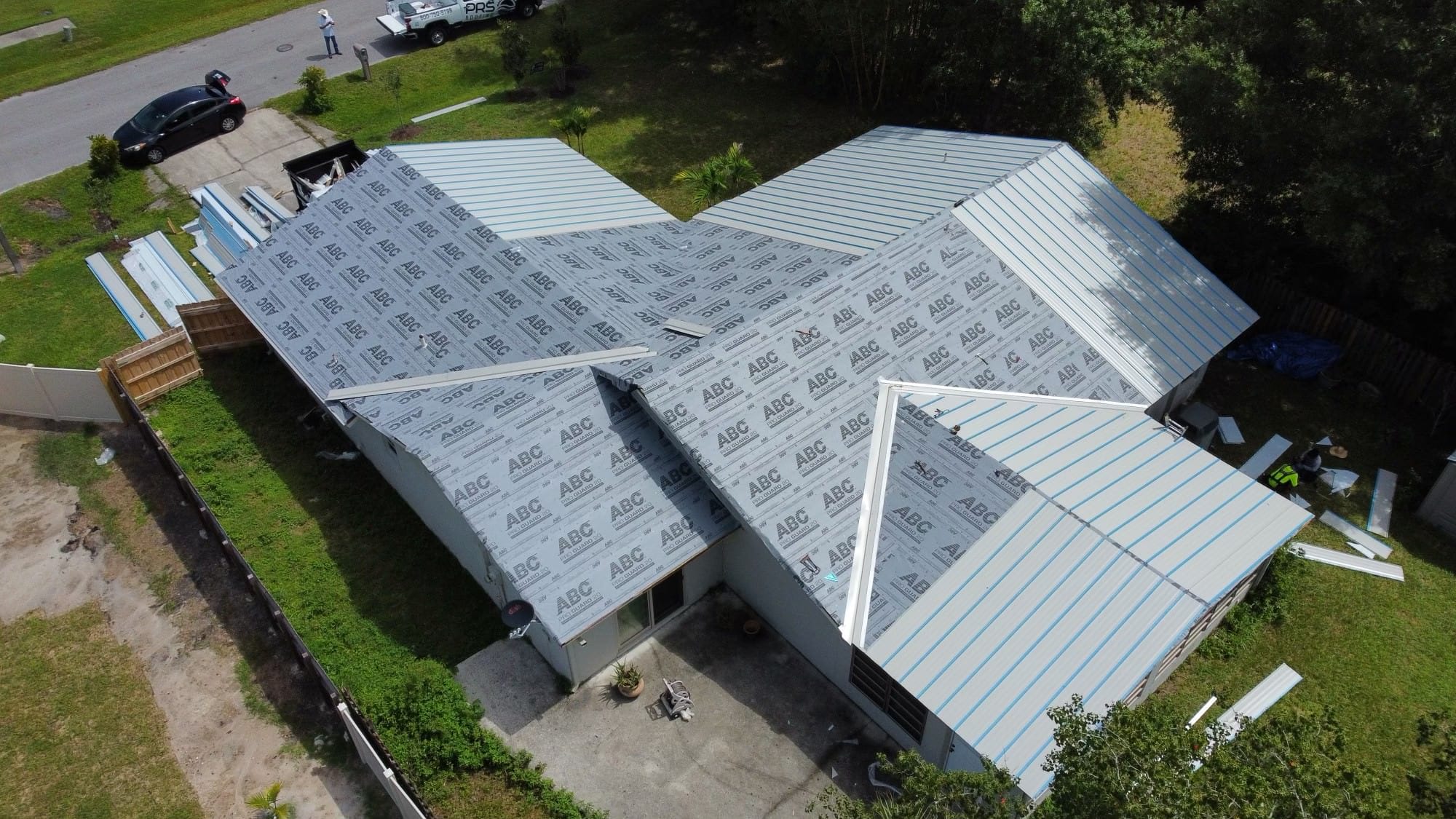When it comes to commercial roof repair or installation, evaluating roofing contractors is a critical step. It’s essential to choose the best roofing contractor to ensure quality and safety throughout the process. Not all roofers are created equal – some may prioritize quick profits, while others genuinely care about the longevity and quality of their work. An insightful approach to contractor selection can result in a trustworthy and experienced partner, like Kingsley Roofing Services, ensuring a high-quality roofing service for your commercial establishment.
Key Takeaways
- Research and compare roofing contractors to find the best fit for your project.
- Verify licenses, insurance, and accreditations to guarantee professionalism and industry compliance.
- Assess the company’s history and establishment to confirm legitimacy and reliability.
- Review work experience and past projects to ensure a high level of craftsmanship and quality.
- Ask for detailed written estimates to understand the project scope and cost fully.
- Maintain open communication and clear expectations for successful project completion.
- Regular roof inspections and evaluations contribute to the longevity and integrity of your roofing system.
The Importance of Expert Roof Evaluations
Professional assessments play a crucial role in detecting roofing problems and ensuring structural safety. The benefits of hiring a reputable roofing contractor encompass experience, expertise, and a thorough understanding of common issues. These qualities contribute significantly to the effectiveness of expert evaluations.
Why Professional Assessments Matter
Comprehensive roof assessments conducted by qualified professionals are essential for maintaining the structural integrity of your building. Reliable roofing contractors identify underlying issues that may lead to costly repairs or even roof failure if not addressed promptly. Moreover, expert evaluations deliver valuable insights into the overall condition of your roof, informing effective preventive maintenance plans and reducing the likelihood of unexpected complications.
Common Roofing Problems and How Experts Identify Them
Experienced roofing professionals are adept at spotting common issues that plague roofing systems. Some of these problems include:
- Weathering and natural deterioration
- Storm damage, such as wind, hail, or fallen debris
- Gutter obstruction and poor drainage
- Vegetation, mold, or algae growth
Expert evaluations involve thorough interior and exterior inspections, including assessment of the roof’s tiles, chimneys, and supporting structures, such as beams and trusses, for signs of sagging or rotting. An experienced roofer will also check for signs of moisture intrusion, ventilation problems, and potential hazards in the attic space.
Structural Safety and the Role of Qualified Roofing Contractors
Ensuring structural safety is a primary concern when it comes to roof maintenance and repair. Regular professional roof assessments serve as a proactive measure for maintaining structural integrity and safeguarding your investment in the long run. By identifying existing and potential hazards early on, a qualified roofing contractor can recommend and execute corrective actions that protect your building from potentially catastrophic damage. In conclusion, the importance of expert roof evaluations cannot be overstated. By investing in regular professional assessments, you can ensure the structural safety of your building and extend the lifespan of your roof, ultimately saving time and money while providing peace of mind.
Navigating Roofer Credentials and Why They Matter
When comparing roofing contractors, it’s crucial to review their credentials, such as licenses and insurance, to ensure they’re authorized and adequately protected. Accreditations from reputable trade associations and a company’s history and establishment play a significant role in determining their reliability and accountability in the industry. In this section, we’ll delve deeper into the importance of understanding licensing and insurance requisites, accreditations, and trade associations and assessing the company’s establishment and history.
Understanding Licensing and Insurance Requirements
It’s essential to require your chosen roofing contractor to have up-to-date licensing and insurance. Licensing guarantees your roofer has met the minimum requirements established by the local authorities for providing roofing services. On the other hand, insurance safeguards you from potential liabilities that may arise from unforeseen accidents or damages during the roofing project. There are two types of insurance a roofing contractor should have: General Liability Insurance and Workers’ Compensation Insurance. General Liability Insurance covers any property damage or injuries caused by the contractor, while Workers’ Compensation Insurance protects you from liability if a worker gets injured on your property.
Accreditations and Trade Associations
Accreditations from reputable trade associations, such as the National Federation of Roofing Contractors, suggest a commitment to industry standards and best practices. Membership in trade associations demonstrates a roofing contractor’s dedication to staying current with the latest techniques, materials, and safety regulations. As a result, you can have confidence in their ability to provide high-quality service and adhere to professional guidelines.
Assessing Company Establishment and History
Evaluating a company’s history and establishment is vital to gauge its legitimacy and professionalism. Verify their physical address and full contact details to ensure they operate a genuine business. A well-established company will typically have a portfolio of past work, helping you witness their expertise and reliability over time. A contractor’s willingness to showcase this information reflects their accountability and trustworthiness in the industry. In conclusion, reviewing roofing company credentials and affiliations is a critical aspect of ensuring the best possible outcome for your roofing project. A thoroughly vetted contractor will protect your investment and prevent future issues from arising.

The Relevance of Experience in the Roofing Industry
Experience is a vital factor when considering which roofing contractor to hire for your project. More experienced contractors will have a broader skillset and proven track record that demonstrate their capabilities. In this section, we will discuss how evaluating past projects and workmanship can ensure you make an informed decision when assessing roofing contractors. Additionally, we will explore why experience equates to quality in the roofing industry.
Evaluating Past Projects and Workmanship
One of the most effective ways to assess a roofer’s experience is by examining their past projects. A contractor’s track record showcases their expertise and ability to deliver high-quality roofing services. Request visual proof of previous projects to confirm that their workmanship aligns with your expectations and requirements. This analysis should include:
- Quality of materials used
- Adherence to safety standards
- Attention to detail and craftsmanship
- Client satisfaction
Table 1: Key factors to assess when evaluating past projects and workmanship
Why Experience Equates to Quality
Experience is crucial in determining the quality of roofing services. Companies like Kingsley Roofing Services, with years of diverse project experience, have refined their skills and are adept at addressing construction challenges and offering effective solutions. These seasoned contractors typically stay abreast of the latest industry techniques, materials, and standards, guaranteeing top-notch results for your project. Therefore, when selecting a roofing contractor, assessing their experience is vital for ensuring superior service. A thorough review of their past work can guide you to make an informed choice for your roofing needs.
Evaluating Roofing Contractors
When it comes to evaluating roofing contractors, a series of crucial steps must be followed to ensure you find the right professional for the job. The first part of the process requires examining potential service providers’ qualifications, experience, and professionalism. It is vital to conduct thorough research to understand each contractor’s standing in the industry and their ability to satisfy your roofing needs. Here, we present a comprehensive guide detailing the essential tips for assessing roofing contractors:
- Verify their licenses and insurance coverage, ensuring they meet the required legal standards.
- Evaluate their track record, past project portfolio, and overall industry reputation.
- Request detailed written estimates to understand the project’s scope and cost breakdown.
- Conduct face-to-face or virtual interviews to discuss their approach and project management style.
To effectively evaluate roofing contractors, it’s essential to request written estimates outlining costs and project scope. This helps you make an informed decision based on the financial aspects. Additionally, ask contractors about their experience and approach to potential challenges, assessing their problem-solving skills and adaptability. These factors are vital for a successful roofing project. By thoroughly assessing contractors and their methods, you’ll likely find the most suitable partner for your commercial roofing needs, increasing your chances of reliable and satisfactory service.
Crucial Points When Reviewing Past Work Examples
Understanding the qualities of a reliable roofing contractor is essential when considering potential candidates for your roofing project. One important aspect to assess is the roofing contractor’s previous projects, as they give valuable insight into their expertise and craftsmanship. In this section, we will discuss the importance of visual proof and the significance of a comprehensive roofing portfolio in determining a contractor’s reliability.

Quality Assurance Through Visual Proof
An essential element of a contractor’s past work evaluations is the inclusion of visual proof, such as photographs or in-person examinations of earlier projects. This type of evidence allows you to verify their capability and attention to detail, offering quality assurance in their skills. Furthermore, visual proof can help you identify the contractor’s area of expertise, ensuring that they have experience with projects similar to yours.
The Significance of Extensive Roofing Portfolios
A robust roofing portfolio can demonstrate a contractor’s extensive experience and diverse skill set, signifying their adaptability and proficiency in the trade. These attributes are important qualities of a reliable roofing contractor, as they reveal their level of expertise and dedication to customer satisfaction. A contractor who is unwilling or unable to provide examples of past work might lack the necessary confidence, experience, or capabilities, indicating that it may be wise to look for alternate options.
Demanding Detailed Written Estimates
Selecting the right roofing contractor involves diligent research, comparing multiple options, and evaluating their qualifications and experience. A crucial element in this decision-making process is obtaining a detailed written estimate from each potential contractor. These estimates help you make informed decisions about the scope of work, costs, and materials involved. In this section, we will explore the importance of comparing and deciphering quotes and understanding how costs may change during the project.
Comparing and Deciphering Quotations
When selecting the right roofing contractor, it’s essential to request detailed roofing estimates from multiple companies. This allows you to compare costs, materials, and services, giving you a clearer understanding of their pricing strategies. A well-written estimate should provide an itemized breakdown of expenses, explain how pricing is calculated, and mention any potential cost adjustments. We recommend reviewing these quotations thoroughly to ensure you gain an accurate and comprehensive understanding of what each contractor has to offer.
Points to compare while analyzing quotations:
- Price breakdowns (materials, labor, and equipment costs)
- Project timeline and milestone descriptions
- Warranties and guarantees.
- Additional services or features included in the estimate
Anticipating Changes in Cost
While evaluating detailed roofing estimates, it’s important to consider the possibility of additional costs arising during the project. Roofing work can sometimes reveal unforeseen issues, such as rot, structural damage, or moisture buildup. As a result, these unexpected complications may lead to changes in the initial estimate. A professional roofing contractor should be transparent about potential adjustments, providing updated estimates that include all necessary changes. By discussing these potential variances in advance, you can better prepare yourself for unexpected expenses, ensuring complete transparency and a smooth working relationship.
The Best Time for Roof Inspections and Evaluations
Knowing the ideal time for roof inspections and understanding the recommended inspection frequency is essential in promoting your roof’s longevity and preventing damage. As weather conditions change, roofing materials and integrity may be affected. This section highlights the best time for roof inspections and the recommended inspection frequency.
Seasonal Considerations for Roof Inspections
The best time for roof inspections is typically in the spring, following the potential damage caused by the cold weather season. During winter, snow, ice, and freezing temperatures can cause stress to your roofing system. Inspecting your roof in the spring allows you to address any issues that surfaced during the colder months before they escalate into significant problems. Moreover, a fall roof inspection may also be beneficial in preparing your roof for the upcoming winter. Regular inspections across different seasons will help you maintain the optimal condition of your roofing system.
Recommendations on Inspection Frequency
The roof inspection frequency depends on various factors, including the condition and age of your roofing system and regional climate variations. The National Roofing Contractors Association recommends evaluations every two years. However, some circumstances may warrant more frequent inspections, such as:
- After a severe weather event (e.g., storms, hurricanes)
- When building additions or making structural changes
- If there are noticeable signs of damage or wear
- For older roofs or roofs with a history of leaks and repairs
Regular roof inspections allow you to identify potential problems early, saving on costly repairs and ensuring your roof’s longevity. By following these recommendations, you can better protect your roofing investment and maintain your roof’s structural integrity.
Selecting the Right Roofing Contractor: Tips and Tricks
Selecting the right roofing contractor involves several tips and tricks that protect your investment. Ensuring you ask the right questions before hiring a roofing contractor can significantly impact the outcome of your project. As a property owner, protecting your roofing investment starts by making a proper selection.
Asking the Right Questions Before Hiring
Before choosing a roofing contractor, it’s crucial to ask pertinent questions regarding their business and experience. Inquiries may include the following:
- Permanent business location
- Insurance coverage
- Workers’ compensation
- Licenses
Checking for unresolved complaints through the Better Business Bureau is another essential step to ensure the contractor meets your standards.
Protecting Your Investment with the Proper Selection
To protect your roofing investment, insist on receiving detailed written proposals to ensure you understand the project scope. This transparency makes it easier to compare different contractors and select the best fit for your needs. Key aspects to verify before making a final choice include a contractor’s workmanship warranty, track record, and list of client references. By diligently researching and evaluating your options, you can confidently invest in a reliable professional and enhance the longevity of your roofing system.
Conclusion
In conclusion, evaluating roofing contractors is a crucial process for ensuring the success of your roofing project. By carefully assessing the credentials, experience, and professionalism of potential roofers, you can secure the benefits of hiring a reputable roofing contractor. Along the way, you’ll develop a successful relationship that ensures a satisfactory outcome and lasting peace of mind.
Key Takeaways on Evaluating Roofing Contractors
Remember that factors such as proper licensing, insurance, workmanship warranty, detailed written proposals, and a strong portfolio play vital roles in selecting the right contractor. Each of these aspects contributes to the overall quality and safety of your roofing project, making it essential to thoroughly review and verify the contractor’s information before making a decision.
Maintaining a Successful Relationship with Your Roofing Contractor
Throughout the process, maintain open communication and set clear expectations with your contractor to foster a successful partnership. Encourage transparency and accountability, and make sure to address any concerns or questions you may have along the way. By working together and staying informed, you’ll gain confidence in your contractor’s abilities and ensure a roofing project that meets your standards and provides peace of mind. PRS Roofing, your go-to expert for top-notch roofing services, proudly serves Altamonte Springs, FL. Whether you need a new roof, repairs, or maintenance, our team of skilled professionals is ready to assist. For a free estimate, contact us today at 800-750-9198.
FAQs
What are the essential factors in evaluating roofing contractors?
When evaluating roofing contractors, consider their licensing and insurance, accreditations, company history, experience, and previous projects. Also, assess their communication skills and ask for detailed written estimates.
Why is it important to hire a reputable roofing contractor?
Hiring a reputable roofing contractor ensures you get quality workmanship, professional assessments, structural safety, and peace of mind knowing your investment is protected.
What should be considered when comparing roofing estimates?
When comparing roofing estimates, look for a detailed cost breakdown, explanation of pricing calculations, and any potential adjustments. Comparing quotations allows you to gauge the most reasonable pricing, but also expect costs to change if the roofer uncovers additional issues during the project.
How can I verify a roofing contractor’s experience?
Assess the roofing contractor’s past projects and workmanship by asking for visual proof such as photos or inspecting past projects in person. Also, inquire about their track record in handling similar issues and ask for client references.
How often should roof inspections be conducted?
The National Roofing Contractors Association recommends inspections every two years. However, this might vary based on the condition and age of your roof. Seasonal considerations, like evaluating your roof in the spring following cold weather, also affect inspection schedules.
What questions should I ask a potential roofing contractor?
Ask about the contractor’s permanent business location, insurance coverage, workers’ compensation, licenses, unresolved complaints through the Better Business Bureau, workmanship warranty, and previous client references. Additionally, request detailed written proposals to understand the project’s scope fully.


